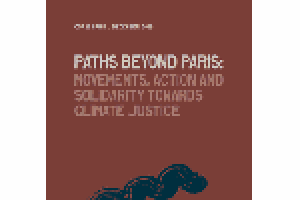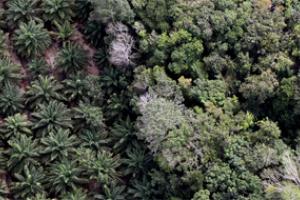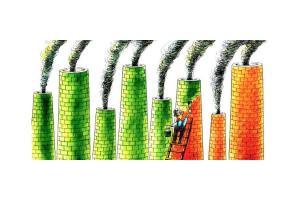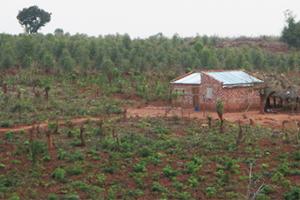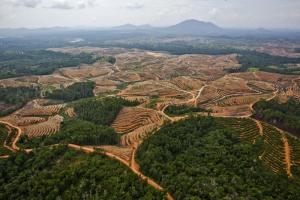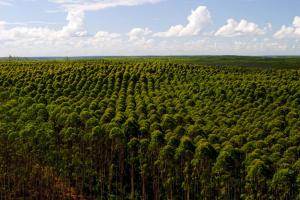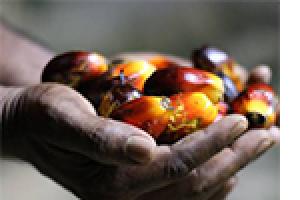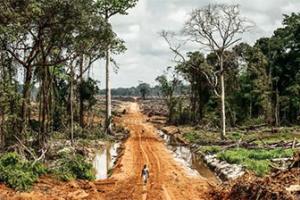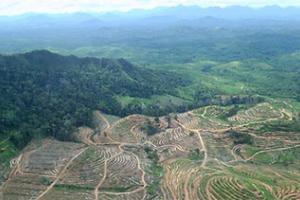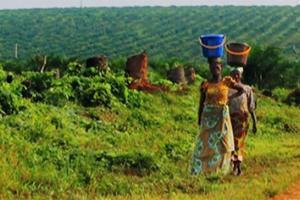Large-Scale Tree Plantations
Industrial tree plantations are large-scale, intensively managed, even-aged monocultures, involving vast areas of fertile land under the control of plantation companies. Management of plantations involves the use of huge amounts of water as well as agrochemicals—which harm humans, and plants and animals in the plantations and surrounding areas.
Other information
2 December 2015
By Carbon Trade Watch.
Bulletin articles
9 November 2015
**This article is based on a conversation between Winnie Overbeek, the international coordinator of the World Rainforest Movement, and GRAIN on September 2014, which was published by GRAIN at “Planet palm oil”. The information has been updated for this article.
Bulletin articles
9 November 2015
Certification has been described as the brightest of bright shining lies of the sustainability movement. And in recent years, certification roundtables have teamed up with another bright shining lie: REDD+
Bulletin articles
9 November 2015
"Nobody eats eucalyptus." With this statement farmers expressed their outrage when the company Aracruz Celulose expanded its monoculture eucalyptus plantations several years ago on arable land in Espirito Santo, Brazil. While the objective was to produce and export more pulp, Aracruz and other companies publicly promote their practices as "smart.” They claimed they only plant trees on "degraded" or "abandoned" land, for example. And now with the climate crisis, the FAO suggests adopting "climate-smart forestry" practices. The question that arises: Can we really consider current company
Bulletin articles
15 October 2015
Other information
15 October 2015
On September 21, about 300 indigenous peoples occupied the Nedila property in the municipality of Prado Bahia, Brazil, where the Suzano Company has a eucalyptus monoculture plantation. The main demand of the indigenous peoples is the immediate closure of the plantation, which is already causing great environmental destruction. The plantation is still not fully developed, but it is already showing its harmful effects on humans as well as on fauna and flora.
Other information
15 October 2015
Malaysian palm oil industry, which produces 40 per cent of the world’s palm oil supply, is growing but, according to labourers and activists interviewed by a Wall Street Journal report, also surrounded with abuses. Migrant workers, especially from Bangladesh and Myanmar, are being brought in terrible conditions by human traffickers as labourers in certain palm oil plantations in Malaysia.
Other information
15 October 2015
An article from the recently launched book “Gender and Land Tenure in the context of Disaster in Asia”, examines the impact of changing land use and land tenure systems in Sarawak on human rights, livelihoods, and local gender practices. The article studies the Iban community of Kampong Lebor whose customary lands were cleared by companies to establish oil palm plantations.
Bulletin articles
15 October 2015
“The world’s forests remain under threat from illegal logging… Illegal logging perpetuates corruption, undermines livelihoods, fuels social conflict, deprives governments of revenue and erodes countries’ natural resource bases.” Chatham House Report, July 2015 (1)
Bulletin articles
15 October 2015
Bulletin articles
15 October 2015
Interview with Jean-François Mombia on oil palm plantations
Could you tell us what is the RIAO-RDC (Information and Support Network for national NGOs-Democratic Republic of Congo) and what are its main activities?

